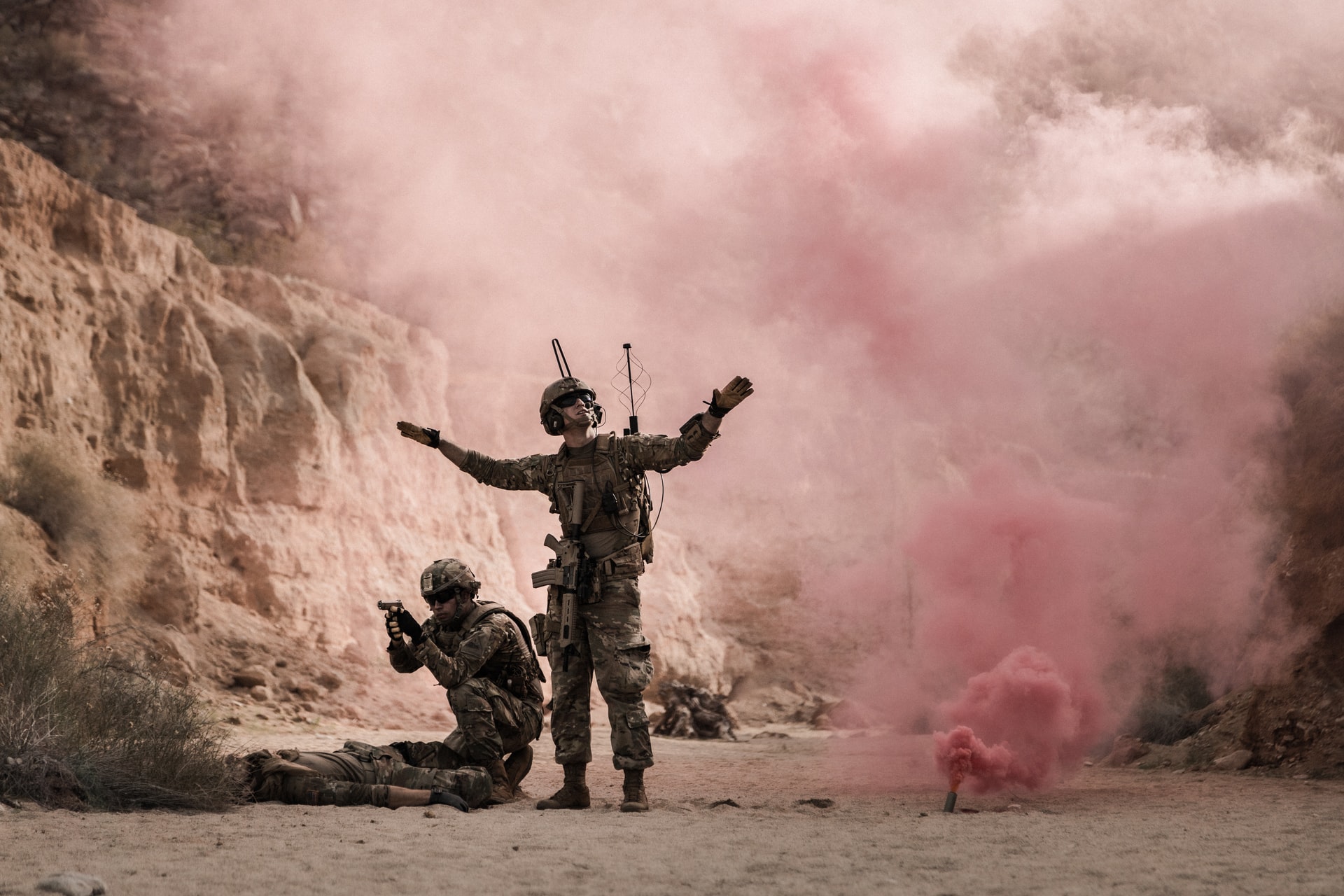The press is giving him no credit, but President Joe Biden is playing Russia perfectly to avert war.

“War,” as the great Motown songwriters Norman Whitfield and Barrett Strong so memorably asked in 1968, “what is it good for?”
Recording legends like Edwin Starr and the Temptations sang their answer. Theirs was the voice of a generation fatigued by war: “Absolutely nothing.”
President Joe Biden obviously agrees.
What was true during the Vietnam War is still true today, if not doubly so. Avoiding war has never been more important for world leaders; the cost of war has never been higher.
With Russian aggression in the news again, President Biden is taking heat for his response from a U.S. press corp determined to prove themselves “impartial”.
Perhaps overcorrecting, even keen foreign policy observers in the media are missing a key piece of the puzzle in their unwarranted criticism of Team Biden.
President Biden isn’t saber-rattling, exaggerating the risk of a Russian invasion into Ukraine, pushing the nation towards war: The tail isn’t wagging the dog. This is real life, not some movie.
Biden is actually pushing the U.S. and Russia further away from war with every press release, communication and back-channel negotiation.
State Department Spokesperson Ned Price was challenged by an AP reporter this week after disclosing during a press briefing that the Biden Administration has received credible intelligence indicating Russian authorities are planning a “false flag” military operation near the Ukraine.
Price told journalists the false flag might include a faked attack on Russian citizens implicating Ukrainian military forces, crisis actors, doctored video- to justify the coming invasion.
When the reporter challenged Price to provide proof of this, he demurred. As well he should.
Secretary of State Anthony Blinken’s State Department is playing a long game, with ramifications far beyond the press briefing room. Biden’s National Security Advisor Jake Sullivan deserves credit as well for a strategy that so far appears to be working.
President Biden, who appointed both, knows exactly what he is doing.
Biden, Blinken and Sullivan all know: Vladimir Putin watches CNN, too.
Sending Price to tip the hand of U.S. intelligence- “don’t try this, we have pre-empted you in the press and you won’t get away with it,” isn’t about evidence, or holding Russia accountable. This isn’t a court of law and no U.S. authority could punish Putin even if it was.
Price’s statement was about one thing only: Deterrence.
Deterrence, unlike war, is good for everything.
Having the State Department hold such a hard line publicly, disclosing that key piece of intel when it did, puts President Biden one step ahead of Putin. It was a tidy bit of anti-war diplomacy.
The President made other key moves with regards to Russia this week, though he has gotten little credit in the press. Threatening the Nord Stream 2 pipeline was lampooned by Biden’s critics as war-mongering, pushing Russia towards an incendiary act of military aggression.
In fact, Biden deserves credit for talking tough on Russia. He knows that the best time to deal with an invasion is before the invasion takes place. If indeed Vladimir Putin has designs on annexing Ukraine, raising the international cost of doing so is the best strategy at this point.
Putin isn’t going to move on Ukraine because he’s angry Joe Biden threatened sanctions. If Putin does move on the Ukraine, it will be because of a coldly-calculated, long-term plan to do so.
Preventing Putin from carrying out that plan, raising the cost of military aggression, is what a sharp, focused, administration should do at this point. Never pick the card your opponent wants you to pick.
Russia’s President isn’t happy with the Biden Administration, and that’s a good sign that Biden hasn’t played into Putin’s plans, whatever they are. Biden isn’t seeking a friendship with Putin; this isn’t a popularity contest.
The goal of the Biden Administration, and the goal of most other NATO nations, is to keep acts of military aggression to a bare minimum.
After an invasion of one sovereign nation by another, anything could happen. Preventing a chain-reaction leading to a full-scale worldwide conflict is paramount.
Why avoid war? See, the long and painful War in Afghanistan, as revealed by the Afghanistan Papers, from which President Joe Biden was quite right to extricate the U.S; the weapons of mass destruction which weren’t there in Iraq: Two recent object lessons on the importance of avoiding war.
In the classic war novel “The Things They Carried,” one lone disillusioned soldier gazes up at the sky from the trenches, marveling at the flying machines and despairing that a people capable of such technological wonders failed so utterly to find any solution better at resolving differences than war.
Since Hiroshima and Nagasaki, we’ve crossed the rubicon from the horrors of yesterday’s wars, which were horrible enough, to the horrors of tomorrow’s.
There will be no more World Wars for humanity: Only Nuclear Wars.
Nuclear weapons, chemical weapons, biological terrors, some mysterious sound or energy weapon that has been implicated in attacks on diplomats around the world, EMP attacks, computer warfare: We face these and more.
And these are just the weapons we know about.
The cost of war has never been higher in all of human history, and the cost of war has always been unbearable.
In times of national struggle, when armed conflict is looming as a real possibility, when America’s enemies could take advance of a COVID19-weakened landscape, national unity is more important than ever.
President Joe Biden, whether you voted for him or not, is America’s President during these trying times. We all must depend on his time-tested leadership and long experience as a statesman.
With Biden’s steady hand at the wheel of foreign policy, the U.S. is sailing further and further from the prospects of war with Russia.
That is something for which all of us can be grateful.
(contributing writer, Brooke Bell)